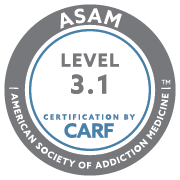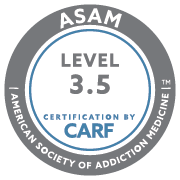Full disclosure….I have anxiety disorder. I come by it honestly—my mom has anxiety, and I’ve earned the right to follow in her ruminating footsteps. She has over-thought herself into such states that she thinks she’s having a heart attack. We both tend to lay in bed cogitating and marinating in a soup of fretting and pondering about anything and everything (How do we have prune juice?? Isn’t a prune a dehydrated plum? How do you have juice from something that is dehydrated? Shouldn’t it be plum juice?). I tend to worry and catastrophize about things that might happen. Sometimes I think my head has taken lessons from Dateline and Unsolved Mysteries the way it jumps to dramatic tragedy on the edge of absurd. Anxiety is an odd little critter… it lives inside, and I sometimes find myself nurturing it like Gizmo, occasionally feeding it after midnight and throwing water on it so that it becomes an all-consuming Gremlin. It causes me to grind my teeth at night to the point of cracking a tooth (I tell my dentist that I will be her first patient to chew through my bite guard).
As is often the case, my anxiety has been made worse by events in my life and upbringing. Epigenetics (the study of changes in organisms caused by modification of gene expression rather than alteration of the genetic code itself) tells us that we have an inherent genetic disposition for a disorder or condition (everything from mental health issues to physical diseases) and that our environment shapes that disorder or even determines if the disorder occurs at all. My parents were both high-functioning, intelligent, list-oriented administrators for the federal government… if I’d been raised by two hippies in a tent, perhaps I would be less anxious and more Zen, but that is not the case.
Anxiety isn’t all bad, however. My anxiety to do well and not let people down makes me a hard worker and accountable to my responsibilities. It allows me to be devoted to making good decisions ethically and ensures I work to treat people with respect. It makes me conscientious and reliable; dedicated and constantly striving to do things better. Anxiety is built on our primitive survival instincts: it makes us risk-adverse and often steers us away from experiences that could be life-threatening or uncomfortable emotionally. We all have anxiety related to survival tasks and this is not necessarily a bad thing.
Perhaps through my own rounds in therapists’ offices and perhaps because of my vocation, I have developed skills to be aware of and manage my anxiety. I am very aware of when it is prepping to run amok. I am aware of how things like sleep, exercise, and events in my environment impact my Gizmo and how to (hopefully) prevent a full-out Gremlin from emerging. I am also able to help my clients recognize and manage their own anxiety, as many are struggling with now.
When COVID-19 first hit, there was anxiety about getting sick, then about the economy, and then about the future (although, to be clear, these worries have not subsided, only modified and become more ripe with time). The first blog I wrote for Rimrock was at the beginning of the pandemic. Now we are several months in, and the anxiety has moved from an acute state to a chronic state and now is starting to move back to an acute stage as we ponder what the school year will bring. I recently had to complete a survey for each of my children for the school district about re-opening. My feelings are mixed: I want them back in school as they truly miss their friends and are really through with having to play (Oops —sorry! At 13 they no longer “play”… they “hang-out”) with each other. I know that they learn better and more when they are with their teachers and practicing social skills with others versus a couple hours of Zoom and mom and dad. The social interactions that they are missing are invaluable. However, I also want to be very aware that there is a deadly virus out there, and I want no part in making it worse and potentially harming another person (just watch how my Gizmo runs with that scenario!). We are fortunate in that we have the resources at home if we need to do school remotely, but not every family is as fortunate as we are. Gizmo has recently been catastrophizing about the children and families that have vulnerable immune systems or not enough computers for their children to really excel with remote learning; it is amazing how my Gizmo-to-Gremlin fires up with things that I cannot control.
I am not alone in experiencing the multiplication of these worries. There are many Gremlins running around right now in my own head and in the hearts and thoughts of nearly everyone in America. So: what do we do? One of the things that we teach our clients at Rimrock is to “take life on life’s terms.” We cannot control the world around us or the actions of others. Our true power lies in being able to manage our own impulses, responses, and cogitations. When I ask a client to move from being Powerless to Powerful, I am asking them to let go of things they cannot control (we call it “surrender” but that term somehow implies that they are giving up so I reframe it) and live a life of focusing on their own issues and engaging in behaviors of integrity. That is what I have to do with my Gizmo (anxiety): focus on my self-care and the things that keep it from staying up past midnight and feasting. We have to channel the anxiety into productivity instead of fear-based paralysis and reactivity. If you are experiencing situationally-based anxiety related to COVID, or if this is feeding your own Gizmo and throwing water on it, there are things you can do. You are not powerless.
Talk about it. We are only as sick as our secrets. When we talk about things, they lose their toxic power. Trust me, when I tell my husband about the Dateline scenario that is running around in my head, I realize how silly it is (“Well, yes, honey, I suppose lightening could strike the house, burn it down including the home owners insurance policy and all our valuable documents even though they’re in a fire-proof safe, and leave us homeless on the street…”). Whether it’s with your family or friends or a professional counselor, talking about what scares and worries us moves us from Powerless to Powerful.
Avoid triggers. I do not watch Dateline or any of those shows (which, sometimes, includes the evening news) because my Gizmo needs no help in finding fodder to play with.
Get enough sleep. When Gizmo is becoming a Gremlin, it is almost always related to feeling tired and overwhelmed.
Exercise. Exercise not only is good for us physically, it also stimulates endorphins and other neurochemicals that help keep us balanced and emotionally regulated. Exercise can be any physical activity — yoga, jogging, gardening, and walking are all great options.
Self-care. What makes you happy? What are the things that you do that make you feel happy and good? Any hobby from outdoor activities (which nicely multi-task as exercise) to knitting, baking, and crafts are all examples of self-care. Self-care is unique to all of us, so you need to find what works for you.
Escape. We all need to escape once in a while; a vacation, reading a book, or watching a movie are all temporary escapes from what is stressing us that can be healthy and proactive. But escape can be tricky if we are always escaping. If you find yourself constantly seeking escape, whether it is with alcohol/drugs, Netflix, sleeping, or simply tuning out, you would benefit from some professional help.
Regardless of what drives your Gizmo or how many Gizmos you may have, they do not have to turn into Gremlins. You are not alone in this crisis, no matter how isolated you may feel.
Rimrock’s Substance Use Specialists and Mental Health Professionals are available online or by phone to provide you the support you need, wherever you are. Connect yourself with the help you need today by completing our online request form or calling our 24/7 helpline at
800-227-3953.





